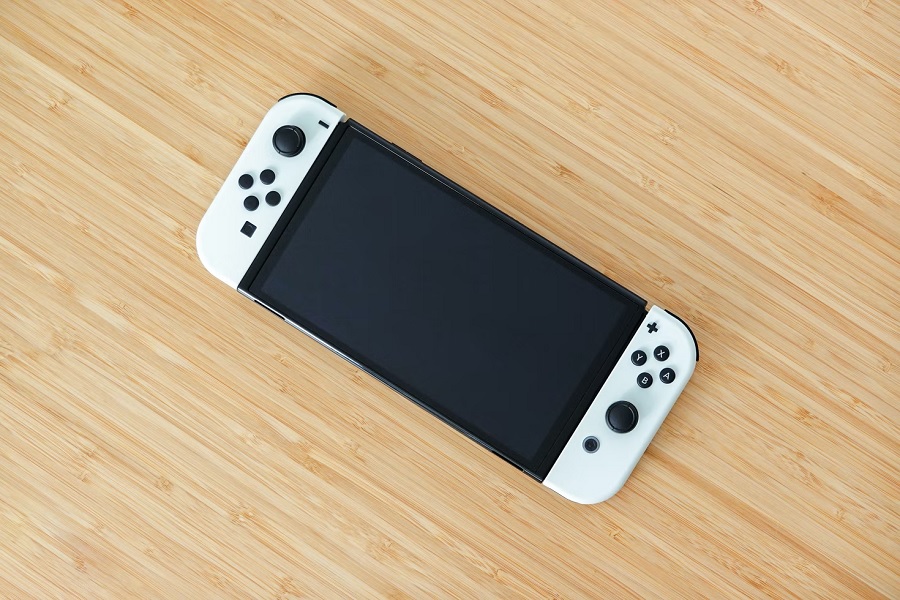Nintendo has yet to reveal concrete plans for the next generation of its gaming system. However, a market research firm predicts that the company could unveil the follow-up to the Nintendo Switch in two years.
While the production and sales of the Nintendo Switch have been hampered by the ongoing global supply chain issues, the console continues to be one of the top-selling gaming consoles in recent years. Over the last year, Nintendo has been rumored to introduce the gaming hardware’s successor. But the company has so far denied such reports and only released an updated model with an OLED display, among other few changes, in 2021.
However, IB Times reports that Piers Harding-Rolls of Ampere Analysis recently released a forecast suggesting that the Nintendo Switch successor could be released in 2024. “By the end of that year Switch is predicted to have sold through 146 million units meaning it still has the potential to become the best-selling console ever by the end of its lifetime, selling over 158 million units and overtaking the PlayStation 2,” Harding-Rolls said.
The lifetime sales of the Nintendo Switch have reached 107.65 million units as of March, meaning Nintendo shipped more than 23 million units of the console throughout the last fiscal year. The latest figure also made the hybrid console the second top-selling Nintendo system since the 3DS, which was in production from 2011 to 2020.
Despite Nintendo’s silence on the Nintendo Switch successor, the company previously confirmed it has already started working on the upcoming console. During a Q&A with inventors in November, Nintendo president Shuntaro Furukawa said (via David Gibson) that internal discussions for the next-gen system’s concept and time frame were already in motion. But Furukawa noted at the time that the Nintendo Switch was still in the middle of its lifecycle, which was a clearer indication that a follow-up console is not launching anytime soon.
In a more recent Q&A with investors, Furukawa also assured us that the transition from Nintendo Switch to its successor is a “major concern” for the company. “Based on our experiences with the Wii, Nintendo DS, and other hardware, it is very clear that one of the major obstacles is how to easily transition from one hardware to the next,” Furukawa said.
Photo by Jeremy Bezanger on Unsplash



 Sam Altman Reaffirms OpenAI’s Long-Term Commitment to NVIDIA Amid Chip Report
Sam Altman Reaffirms OpenAI’s Long-Term Commitment to NVIDIA Amid Chip Report  Alphabet’s Massive AI Spending Surge Signals Confidence in Google’s Growth Engine
Alphabet’s Massive AI Spending Surge Signals Confidence in Google’s Growth Engine  Elon Musk’s SpaceX Acquires xAI in Historic Deal Uniting Space and Artificial Intelligence
Elon Musk’s SpaceX Acquires xAI in Historic Deal Uniting Space and Artificial Intelligence  Amazon Stock Rebounds After Earnings as $200B Capex Plan Sparks AI Spending Debate
Amazon Stock Rebounds After Earnings as $200B Capex Plan Sparks AI Spending Debate  SoftBank and Intel Partner to Develop Next-Generation Memory Chips for AI Data Centers
SoftBank and Intel Partner to Develop Next-Generation Memory Chips for AI Data Centers  SpaceX Updates Starlink Privacy Policy to Allow AI Training as xAI Merger Talks and IPO Loom
SpaceX Updates Starlink Privacy Policy to Allow AI Training as xAI Merger Talks and IPO Loom  Baidu Approves $5 Billion Share Buyback and Plans First-Ever Dividend in 2026
Baidu Approves $5 Billion Share Buyback and Plans First-Ever Dividend in 2026  Anthropic Eyes $350 Billion Valuation as AI Funding and Share Sale Accelerate
Anthropic Eyes $350 Billion Valuation as AI Funding and Share Sale Accelerate  Global PC Makers Eye Chinese Memory Chip Suppliers Amid Ongoing Supply Crunch
Global PC Makers Eye Chinese Memory Chip Suppliers Amid Ongoing Supply Crunch  AMD Shares Slide Despite Earnings Beat as Cautious Revenue Outlook Weighs on Stock
AMD Shares Slide Despite Earnings Beat as Cautious Revenue Outlook Weighs on Stock  Nvidia CEO Jensen Huang Says AI Investment Boom Is Just Beginning as NVDA Shares Surge
Nvidia CEO Jensen Huang Says AI Investment Boom Is Just Beginning as NVDA Shares Surge  Oracle Plans $45–$50 Billion Funding Push in 2026 to Expand Cloud and AI Infrastructure
Oracle Plans $45–$50 Billion Funding Push in 2026 to Expand Cloud and AI Infrastructure  TSMC Eyes 3nm Chip Production in Japan with $17 Billion Kumamoto Investment
TSMC Eyes 3nm Chip Production in Japan with $17 Billion Kumamoto Investment  Tencent Shares Slide After WeChat Restricts YuanBao AI Promotional Links
Tencent Shares Slide After WeChat Restricts YuanBao AI Promotional Links  Nintendo Shares Slide After Earnings Miss Raises Switch 2 Margin Concerns
Nintendo Shares Slide After Earnings Miss Raises Switch 2 Margin Concerns  Nvidia Confirms Major OpenAI Investment Amid AI Funding Race
Nvidia Confirms Major OpenAI Investment Amid AI Funding Race 































